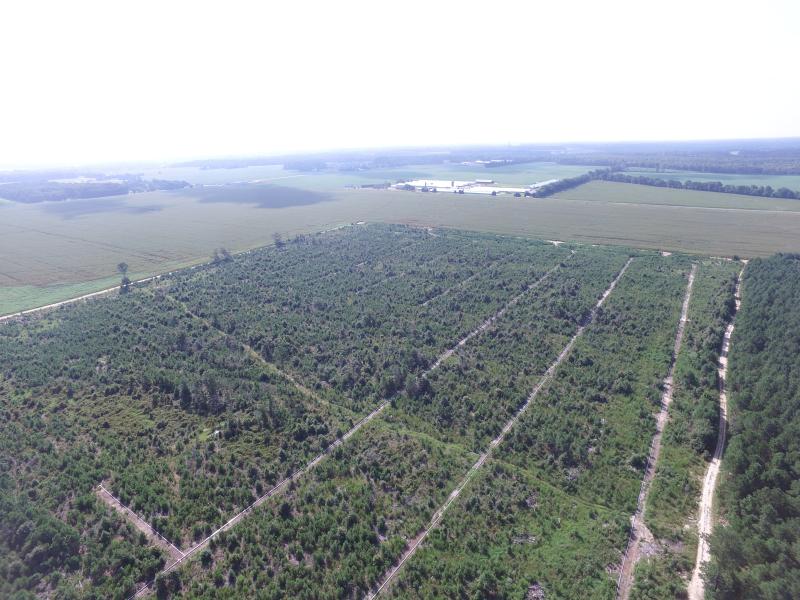Keep Our Wells Clean suit heads to Supreme Court

A Milton-based environmental group is taking its case to prevent the operation of a new spray irrigation field on Route 16 to Delaware’s highest court.
Delaware Supreme Court will hear the case of Keep Our Wells Clean v. Delaware Department of Natural Resources and Environmental Control at 10 a.m., Wednesday, Oct. 7, in Dover. The justices will rule on whether to uphold the state’s Environmental Appeals Board ruling allowing Artesian Wastewater Management to move forward with the Sussex Regional Recharge Facility, a network of spray irrigation fields starting at the intersection of Route 16 and Route 30, and reaching north toward Milford. The complex includes a 90-million gallon storage lagoon.
The Artesian project has been controversial because the facility’s first client was poultry producer Allen Harim, which activists say has a poor environmental record.
At issue in the lawsuit filed by Keep Our Wells Clean is whether Artesian could build the facility under regulations passed in 1999, which were in effect when Artesian’s permit was originally approved by DNREC, or whether the company has to build under new regulations passed in 2014, which had more rigorous testing requirements and were in effect when Artesian actually began construction.
The Sussex Regional Recharge Facility began life as the Artesian Northern Sussex Regional Wastewater Recharge Facility and was envisioned as a three-phase project with a wastewater treatment plant, three storage lagoons, a treatment capacity of 3 million gallons per day and a spray irrigation system. The original idea was to build the facility to serve the proposed Elizabethtown development and other developments the company figured would pop up around the Milton area. But when the financial crash happened, Elizabethtown was abandoned and Artesian went back to square one.
Artesian’s permit was approved under DNREC regulations passed in 1999. In 2014, DNREC adopted new regulations. In May 2017, Artesian struck a deal with Allen Harim to take treated wastewater from Allen Harim’s Harbeson plant and spray it at Artesian’s 700-plus acres of spray fields northwest of Milton. Allen Harim had been discharging its treated wastewater into Beaverdam Creek.
Artesian filed an application with DNREC to amend its construction permit to change from domestic wastewater to food-processing wastewater. DNREC’s Groundwater Discharge Section recommended Secretary Shawn Garvin approve the project, and Garvin did so in November 2017.
Keep Our Wells Clean, a citizens action group, appealed Garvin’s decision to the Environmental Appeals Board, which upheld the decision after two public hearings in May 2018 and March 2019. Keep Our Wells Clean appealed the board’s ruling to Delaware Superior Court.
Keep Our Wells Clean argued that the changes Artesian was seeking were substantial enough to merit refiling the construction permit, with additional soil testing required under the 2014 DNREC regulations.
In March, Judge E. Scott Bradley ruled in favor of Artesian and DNREC, saying that Artesian already has a construction permit and the changes are not substantial enough to require a new permit.
“The evidence in the record supports the conclusions by the secretary and the Environmental Appeals Board that the proposed changes would have no effect on the drinking water,” Bradley said. “The agricultural lands to be used in this case have been extensively studied and found suitable for spray irrigation.”
Keep Our Wells Clean then appealed the decision to Delaware Supreme Court, and arguments will be held Oct. 7.
The Sussex Regional Recharge Facility has been completed, but has not started pumping yet. Artesian spokeswoman Virginia Eisenbrey said Allen Harim has not received its operations permit from DNREC; once it does, she said, operations at the facility can begin. Eisenbrey said Artesian has successfully tested the disposal and distribution sites.
Andrea Green, one of the principals of Keep Our Wells Clean, said, “The appellants believe it is a positive sign that the justices recognize that there are serious legal issues raised in the appeal. Keep Our Wells Clean and the individual appellants continue to maintain that DNREC improperly granted the amended construction permit and that the Environmental Appeals Board and Superior Court were wrong in dismissing our objections and affirming the secretary's decision. Ultimately, we believe proper testing in accordance with the applicable regulations will result in a decision that the site is inappropriate and that there are inadequate safeguards for the public.”
Ryan Mavity covers Milton and the court system. He is married to Rachel Swick Mavity and has two kids, Alex and Jane. Ryan started with the Cape Gazette all the way back in February 2007, previously covering the City of Rehoboth Beach. A native of Easton, Md. and graduate of Towson University, Ryan enjoys watching the Baltimore Ravens, Washington Capitals and Baltimore Orioles in his spare time.






















































